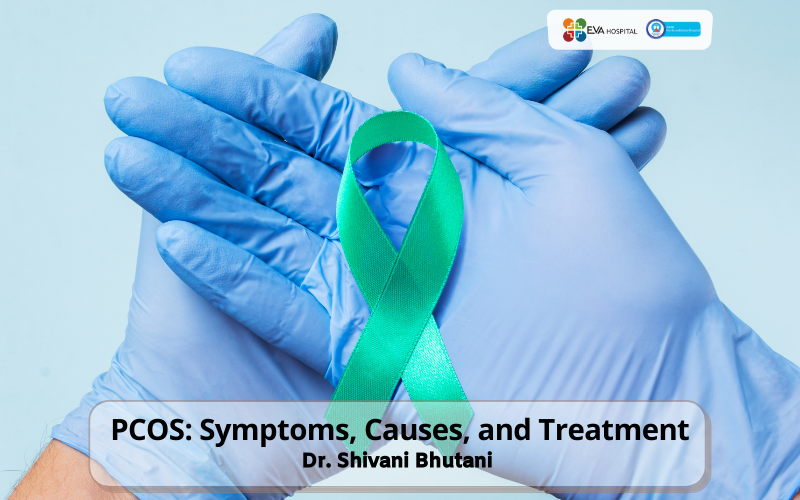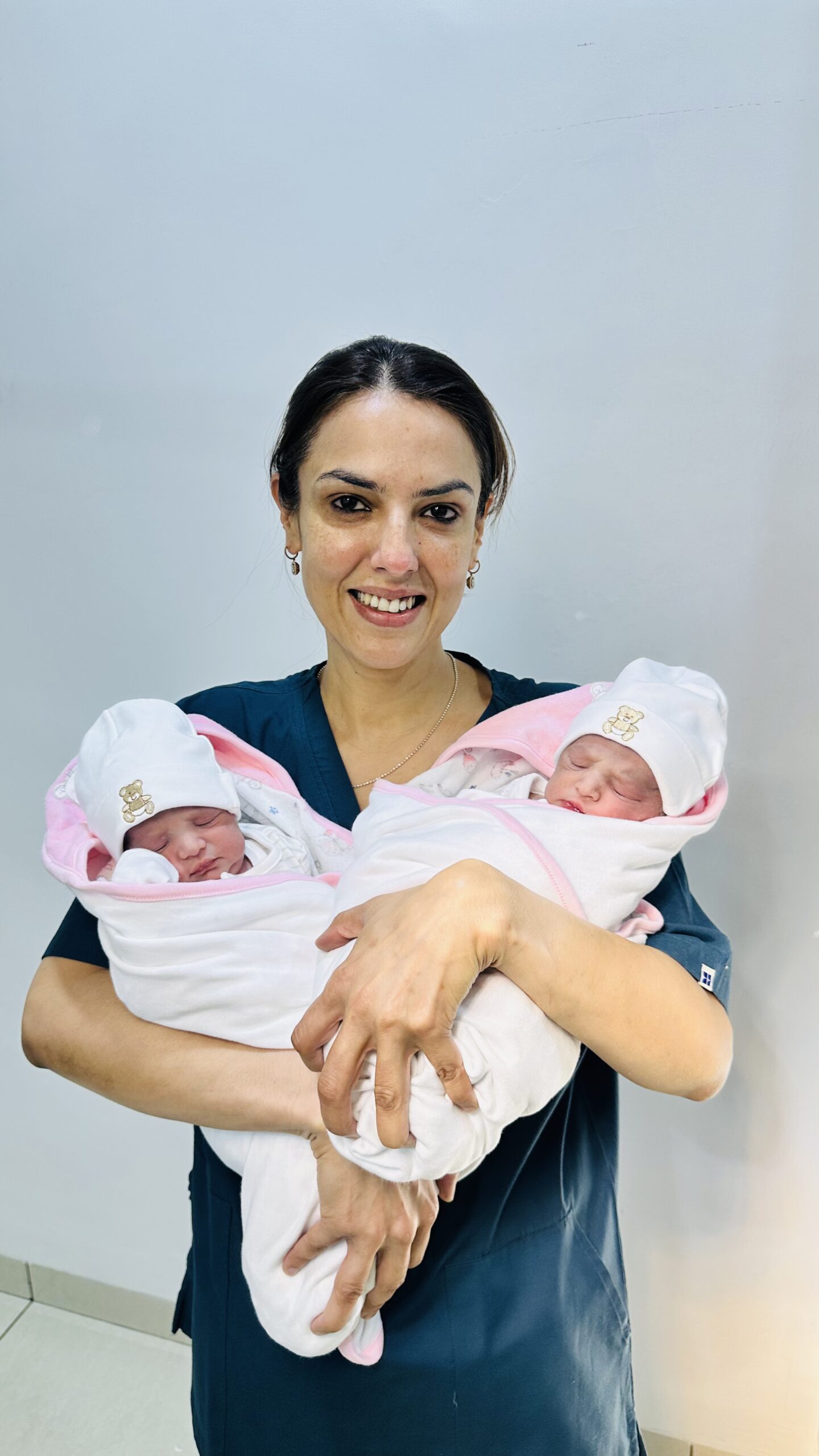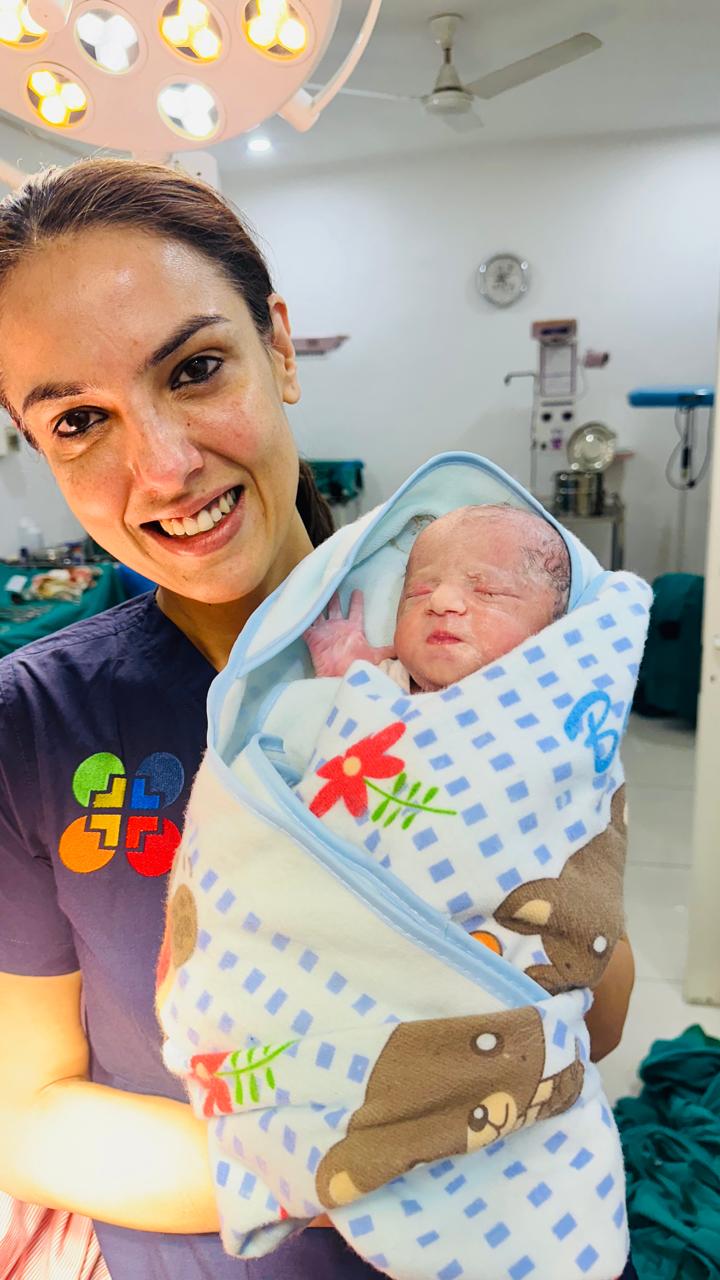[vc_row el_class=”cstm_container”][vc_column][vc_column_text]
Overview
Polycystic Ovary Syndrome and Pregnancy is a condition that affects a woman’s hormone levels during their childbearing years. Women’s ovaries, the reproductive organs that produce the menstrual cycle regulating oestrogen and progesterone are affected in PCOS.
A small amount of male hormones called androgens is also produced by ovaries. An egg is released by the ovaries every month to be fertilised by a man’s sperm. This process is called ovulation.
PCOS affects the ovaries and ovulation. Its three main features are:
- Cysts in the ovaries
- Higher levels of male hormones
- Erratic or skipped periods
Many small, fluid-filled sacs or cysts grow inside the ovaries in PCOS. The word “polycystic” infers “many cysts.” The cysts though not harmful otherwise, can lead to an imbalance in hormone levels.
These sacs are actually follicles, each one containing an immature egg. The eggs never mature enough to trigger ovulation.
The levels of oestrogen, progesterone, FSH, and LH are altered, making Progesterone levels lower than usual and androgen levels higher than usual. A disruption in the menstrual cycle is caused by higher male hormones, thus women with PCOS get lesser periods than usual.
Higher than normal amounts of male hormones in women cause them to skip menstrual periods and this imbalance makes it harder for them to get pregnant.
Hair growth on the face and body, baldness and long-term health problems like diabetes and heart disease are also caused by PCOS.
Women with PCOS have a higher incidence of miscarriage, gestational diabetes, pregnancy-induced high blood pressure and premature delivery if they conceive.
Causes
The exact cause of PCOS is not known by doctors. It is believed that elevated levels of male hormones prevent ovaries from a normal production of hormones and eggs.
Though the exact cause of PCOS is unknown, there is an indication that genetics play a major role.
Many other factors play a role in causing PCOS:
Higher levels of male hormones (androgens): Ovaries are prevented from releasing eggs (ovulation) due to higher levels of androgen, causing erratic menstrual cycles. High androgen might also cause acne and excess hair growth in women.
Insulin resistance: The hormone produced by the pancreas to help the body use sugar from energy foods is called insulin. Elevated insulin levels trigger the ovaries to make and release male hormones, which in turn, suppress ovulation and add to other symptoms of PCOS. Obesity can also cause insulin resistance and both are contributing factors to an increase in the risk for type 2 diabetes
Low-grade inflammation: A tendency of chronic low-grade inflammation has been noticed in women with PCOS. Blood tests that measure levels of C-reactive protein (CRP) and white blood cells, can reveal the level of inflammation in the body. Inflammation can also be caused because of being overweight. Excess inflammation is linked to higher androgen levels.
Common Symptoms of PCOS
Symptoms are noticed by some women around the time of their first period, whereas others discover they have PCOS after they have gained a lot of weight or there is trouble getting pregnant.
The most common PCOS symptoms are:
- Irregular periods: Lack of ovulation inhibits the shedding of uterine lining every month, causing missed periods or lack of periods.
- Heavy bleeding: The uterine lining builds up for a longer period of time, causing the periods (when they happen) to be heavier than normal.
- Hair growth: Excessive hair growth on, the face, body, back, belly, and the chest is experienced by many women who suffer from PCOS.
- Acne: The skin is oilier than usual due to male hormones, causing breakouts on areas like the face, chest, and upper back, which is usually difficult to treat.
- Weight gain: Difficult to lose weight gain and obesity is experienced by 80% per cent of women with PCOS.
- Male pattern baldness: Thinning of hair or falling out of the hair on the scalp
- Darkening of the skin: Dark patches of skin especially in body creases like the neck, armpits in the groyne, and under the breasts is noticed in women with PCOS.
- Headaches: Hormone changes cause triggering of excruciating headaches in some women
- Skin tags: Little flaps of extra skin are often found in the armpits or on the neck in women with PCOS.
- Infertility: PCOS is one of the major causes of female infertility. Decreased ovulation or lack of it can result in not being able to conceive as the woman is not able to produce enough eggs to be fertilised. PCOS is one of the leading causes of infertility in women.
Metabolic Syndrome
Most of the women with PCOS are overweight or obese. Both of these can increase the risk for:
- Elevated blood sugar
- Raised blood pressure
- Low level of HDL “good” cholesterol
- High level of LDL “bad” cholesterol
All these factors together are called metabolic syndrome, and can pose to be a high-risk factor for:
- Heart disease
- Diabetes
- Stroke
Endometrial Cancer
The uterine lining sheds during ovulation. However, if the woman is not ovulating every month, it can cause the lining to build up.
This thickened uterine lining can cause an increase in the risk for endometrial cancer.
Depression
Hormonal changes and symptoms like unwanted hair growth negatively affect emotions, eventually causing depression and anxiety in many patients with PCOS
Pregnancy and PCOS
As the normal menstrual cycle is interrupted by PCOS, getting pregnant gets harder. Fertility problem is experienced by almost 70 and 80 per cent of women with PCOS.
The risk for pregnancy complications, premature delivery, miscarriage, gestational diabetes, high blood pressure also increases with PCOS.
Management and Treatment
The treatment is based on the symptoms of the patient, medical history and other health conditions, and if the patient wishes to get pregnant.
Dr Shivani Bhutani at Eva Hospital says that the Management of PCOS includes medications, lifestyle changes or a combination of both.
Weight loss
Lifestyle changes like weight loss, diet, and exercise are the first step to treating PCOS
Losing bodyweight can help regulate the menstrual cycle and improve PCOS symptoms besides improving cholesterol levels, lowering insulin and reducing the risk of heart disease and diabetes.
Cosmetic Treatments
Excessive hair growth or acne can sometimes lower confidence and self-esteem. Cosmetic treatments or consultations with a dermatologist might prove helpful in this respect.
For ones trying to get pregnant
Dr Shivani further adds that for the ones trying to conceive after having been diagnosed with PCOS, the first thing to keep in mind is to Eat healthily and lower the stress levels. These can go a long way in helping one manage PCOS.
The treatment options for patients wanting to conceive are-
Patches, shots, a vaginal ring or an intrauterine device (IUD) can help regulate the menstrual cycle, improve acne help with excess hair growth and protect against endometrial cancer
Surgery
As an option to improve fertility, surgery is usually recommended when other treatments don’t work.
Surgical options include:
- Ovarian drilling: A procedure in which tiny holes are made in the ovaries to reduce the levels of androgens being produced.
- Oophorectomy: Surgery for removal of one or both ovaries.
- Hysterectomy: Removal of whole or part of the uterus.
- Cyst aspiration: A procedure to remove fluid from the cyst.
Drugs to induce ovulation
Ovulation is a prerequisite for a successful pregnancy. Certain drugs can help to induce ovulation in women with PCOS. Clomiphene (Clomid), a combination of clomiphene and metformin, or injectable gonadotropins, such as follicle-stimulating hormone (FSH) and luteinizing hormone (LH) medications are generally recommended by Gynaecologist in Ludhiana In some cases, letrozole (Femara) may also be recommended.
In vitro fertilisation (IVF)
The woman’s egg is fertilised with the partner’s sperm in a lab and then transferred to the uterus. IVF is a highly recommended and viable option with a substantial success rate for women with PCOS who wish to get pregnant and medication doesn’t help with ovulation.
Conclusion
PCOS can play havoc with a woman’s menstrual cycles making it harder to get pregnant. Elevated levels of male hormones cause unwanted symptoms like hair growth on the face and body.
Lifestyle modifications are the first steps recommended to manage PCOS by the doctors, and they are highly effective too.
Weight loss helps to treat PCOS symptoms, improving the odds of getting pregnant.
However, if lifestyle changes do not work, medications are a viable option. Pills and metformin restore normal menstrual cycles to help relieve PCOS symptoms.
Early diagnosis can help alleviate symptoms, reducing the risk of complications. A timely consultation with a doctor helps to manage the symptoms of PCOS and treatments like Ovulation medicines and IVF Process Start to Finish can help the patients with PCOS to get pregnant and start a family.[/vc_column_text][/vc_column][/vc_row]


















